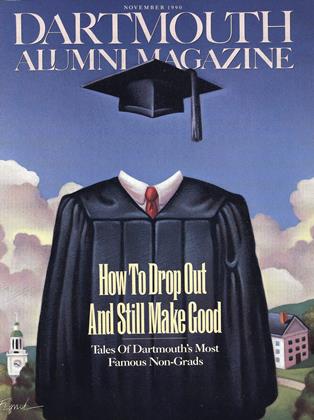• Robert Bellah, at al., Habits of theHeart: Individualism and Commitmentin American Life (University of California Press, 1985). Based on interviews with more than 200 Americans, this collection of essays explores contemporary thinking about the relation of individual goals to social needs.
• Adam Smith, The Wealth of Nations (Penguin, 1986). The complex classic of free market economic theory is central to much American thinking.
• Daniel Defoe, Robinson Crusoe (Norton, 1985). The familiar novel bears rereading for the questions it raises about "self-made man's" relationship with others. Crusoe's autonomy gives way to interaction based on rigid social hierarchy.
• Denis Diderot, Rameau's Nephew, translated by L.W. Tancock, (Penguin, 1966). This sometimes mind-boggling, always entertaining dialogue between "Him" and "Me" explores the social and moral consequences of an economy based on self-interest.
• Denis Diderot, "Supplement to Bougainville's Voyage," in Diderot,Interpreter of Nature: Selected Writings, edited by Jonathan Kemp (International Publishers, 1943). Written from the perspective of a Active Tahitian this travelogue contrasts "natural" Tahitian society with unnatural restraints imposed upon individuals by civilization. Revealing the ethnocentrism of explorers, Diderot exposes European sexual mores, hypocrisies, and conceits.
• Johann Wolfgang von Goethe, TheSorrows of Young Werther translated by Catherine Hutter (Signet, 1962). This letter-novel about a young man's search for identity and his ultimate decision to take his own life was widely read and imitated in the late eighteenth and early nineteenth centuries. It is hard to read Werther's self-representations as a social outcast and rejected lover without wondering what his self-centered "confessions" hide.
• Carol Gilligan, In a Different Voice:Psychological Theory and Women'sDevelopment (Harvard, 1982). This controversial study suggests that men and women apply different criteria to moral issues. Gilligan's ideas prompt us to ask if women and men also view individualism in gender-specific ways.
• Robert Reich '68, Tales of a NewAmerica (Times Books, 1987). Economist Reich contrasts American reliance on individual autonomy, skill, and ingenuity with what he sees to be Japan's successful tradition of integration into the collective though he does not ask what the psychic costs may be to individual Japanese.
 View Full Issue
View Full Issue
More From This Issue
-
 Feature
FeatureShrink Rap
November 1990 By Rob Eshman '82 -
 Feature
FeatureLIVING THE LIFE OF THE MIND
November 1990 By Cynthia Richards '90 -
 Feature
FeatureHanging Them Up
November 1990 By Jonathan I. Z. Agronsky '68 -
 Cover Story
Cover StoryHorace Fletcher 1870
November 1990 -
 Cover Story
Cover StoryWalter F. Wanger 1915
November 1990 -
 Cover Story
Cover StoryJohn Ledyard 1776
November 1990







